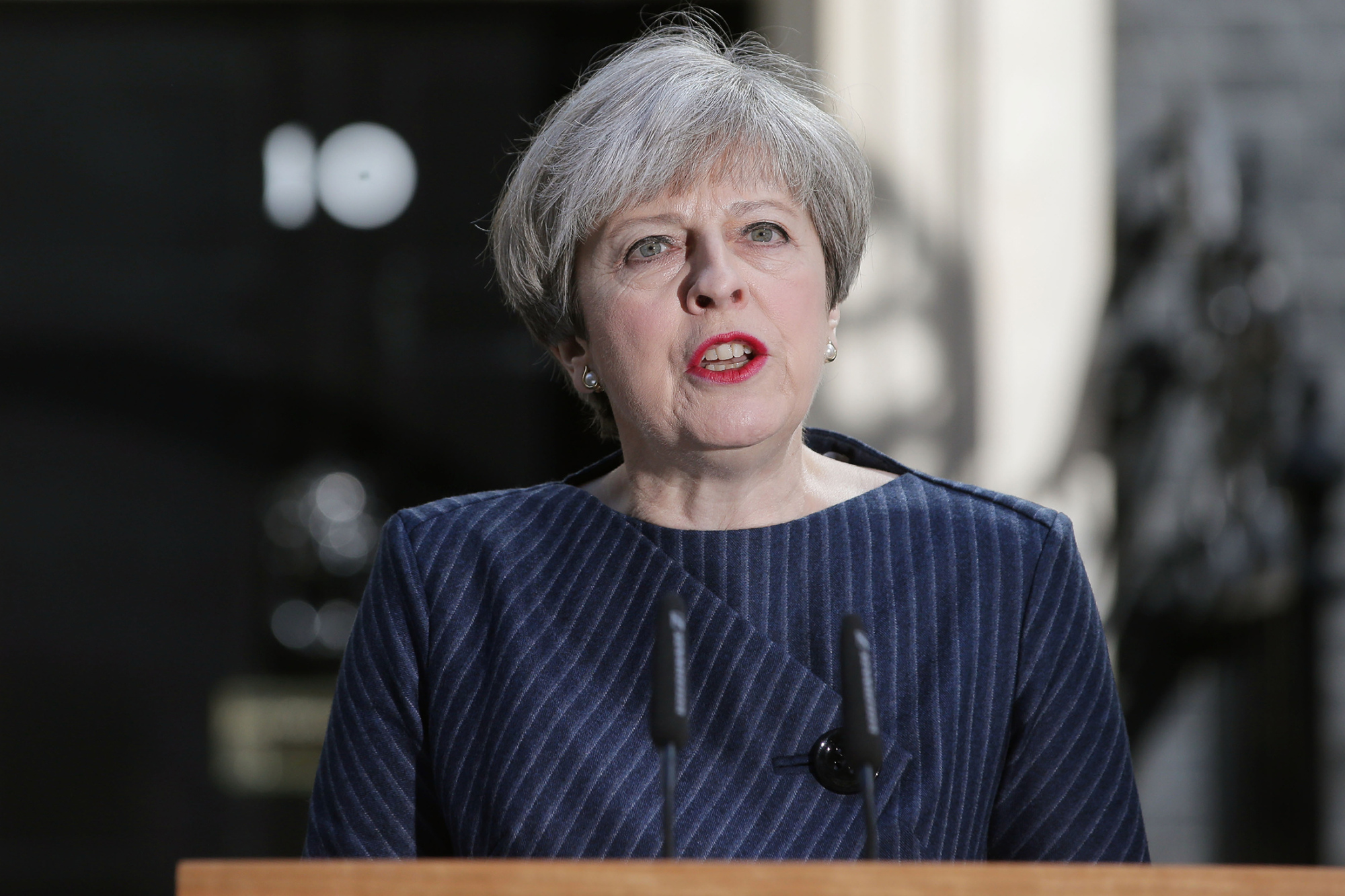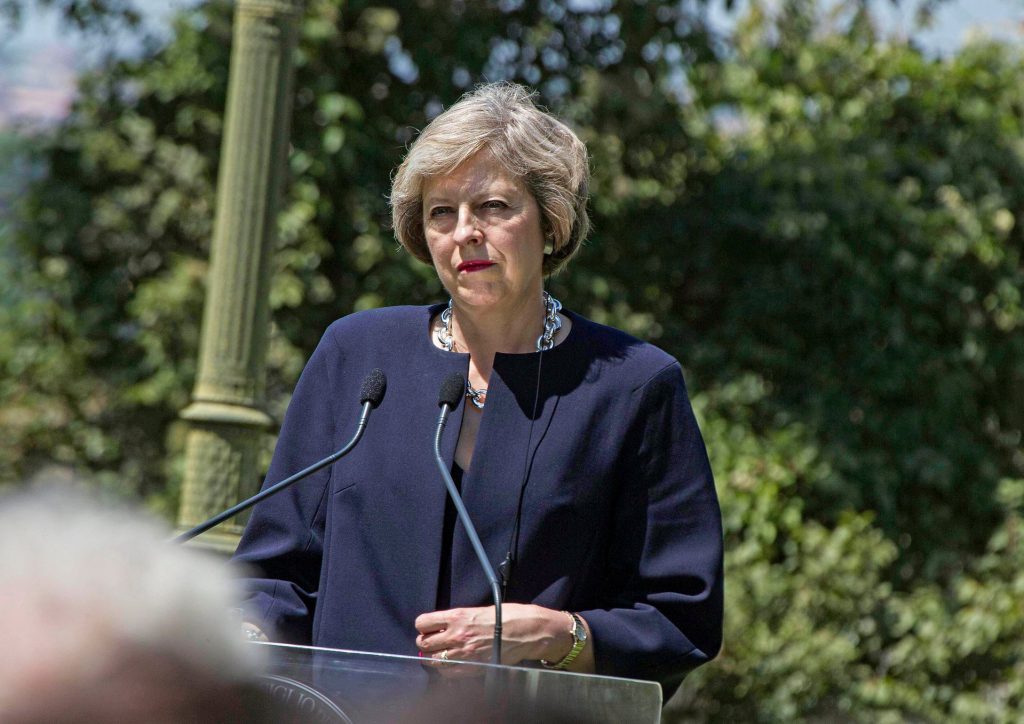On Monday, Dec. 4, British Prime Minister Theresa May will sit down to what could turn out to be the most expensive meal in history. Her lunch date will be Jean-Claude Juncker, who as European Commission president has a powerful role in determining progress toward a Brexit deal.
Over seasonal dishes and vintage wines in Brussels, May will seek to persuade Juncker to start discussions on a new trade agreement between the U.K. and the European Union, as well as to allow a two-year transitional period to help British businesses plan and adjust. Juncker will be expecting May to pick up the tab: The EU is demanding that the U.K. pay an exit bill of €60 billion to depart the bloc.
For May, the pressure heading into the Dec. 4 encounter is intense. If talks between British and EU negotiators beforehand go well, the dream of a successful Brexit deal will remain alive. If they go badly, the odds of a chaotic rupture with no new trade agreement will dramatically increase, as time starts to run out for meaningful talks. Under the timetable prescribed by Article 50 of the Treaty of Lisbon, the U.K. has until March 2019 to get a new deal ratified by Parliament and all EU member states.
May has secured her cabinet’s support to increase the offer on the so-called divorce bill. (Unconfirmed reports in the British media put the figure at €45 billion to €55 billion.) Her biggest headache now is what to do with the Irish border. The frontier between the Republic of Ireland, an EU member state, and Northern Ireland, which will be leaving the bloc as part of the U.K., will become the EU’s new—and potentially most porous—external boundary after Brexit.
With support from the rest of the EU, Irish Premier Leo Varadkar is demanding written assurances that the U.K.’s withdrawal from the bloc won’t lead to a return of checkpoints that would evoke decades of sectarian violence between Catholics and Protestants. Memories of the conflict are still fresh and any renewal in hostilities could trigger the collapse of the semiautonomous government in Northern Ireland, which is already in a precarious state.
At this critical stage, Ireland has a veto and could prevent the negotiations from moving on from the divorce issues to trade. May’s officials are trying to draft language that would allow the Irish to claim a victory while deferring a final settlement on the border question until the terms of a new trade and customs arrangement with the EU are clear.
At the same time, British negotiators are working frantically to try to tie up the loose ends with their European counterparts ahead of the Dec. 4 lunch. May’s chief Brexit negotiator, David Davis, will most likely travel early to the Belgian capital to meet with Barnier.

For Britain, the hope is that their meeting will result in a statement summing up the progress made in the talks so far, setting the scene for an amicable May-Juncker meal and a declaration that the negotiations can move forward. If all goes to plan, the U.K. will formally get the green light to start negotiations on the transitional arrangements and future trade ties with the bloc at a summit of European leaders scheduled for Dec. 14-15.
The lingering uncertainty hasn’t been good for the British economy. In its latest set of predictions, released on Nov. 22, the Office for Budget Responsibility has U.K. growth falling short of 2 percent every year through 2021. The nonpartisan fiscal watchdog also halved its estimate for productivity gains over the next five years.
The Organization for Economic Cooperation and Development is even more pessimistic: In the Nov. 28 edition of its Economic Outlook, it sees growth of 1.5 percent this year dwindling to 1.2 percent in 2018, which would be Britain’s worst performance since the financial crisis. “The major risk for the economy is the uncertainty surrounding the exit process from the European Union, which could hold back private spending more than projected,” says the report.
Eurosceptic legislators within May’s own Conservative Party say they’re prepared to exit the EU with no deal at all, though the thought is anathema to most businesses. Liam Fox, the British trade secretary, declared in a Nov. 28 interview that he was “not afraid” of leaving the bloc with no agreement and falling back on World Trade Organization tariffs. “We believe that we have gone far enough,” he said. Pro-European Tories are against the idea and are fighting it in Parliament.
When she meets with Juncker, May should be prepared to play hardball, says her former cabinet colleague Iain Duncan Smith. “This should be a moment for us to say, ‘We are getting on with leaving, and if you don’t want a free-trade arrangement, then it’s not a disaster,’ ” he says. “I don’t think there’s any point talking to them much further until they decide they want to talk about trade.”

